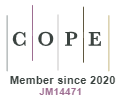Maturity in Strategic Project Management: impact factors in a public education institution
DOI:
https://doi.org/10.5585/iptec.v8i1.15875Keywords:
Maturity in Project Management, Strategic Projects, Public Education InstitutionAbstract
The present study aims to identify the factors that influence the perception of maturity over strategic projects management. A cross-sectional exploratory case study was carried out with a sample of 142 managers and members of strategic projects teams from the Federal Institute of Espírito Santo (IFES). The data were collected through semi structured questionnaires, complemented with factual and documentary analysis. Data was treated quantitative and qualitatively. The results showed that the variables that influence the perception of maturity in project management at the Institute were time management, costs, communications, stakeholders and acquisitions, as well as the degree of the managers´ professional education and the organizational structure with a full-time project manager supported by senior management. The results, although they cannot be generalized, point out ways to guide policies and incentives to increase the performance of strategic projects in public education institutions.
Downloads
References
Abdullah, W. M. W. & Ramly, A. (2006). Does successful project management equates to project success? Proceedings of 5th IEEE International Conference of Cognitive Informatics 2006, Beijing, China. Recuperado em 29 de janeiro, 2019, de http://eprints.utm.my/id/eprint/648/1/CM_53%5B1%5D._Does_Successful_PM._Wan_Maimun.pdf.
Baker, B. N., Murphy, D. C., & Fisher, D. (1988). Factors affecting project success. In: Cleland, D. I. & King, W. R. (Eds.). Project Management Handbook. New York: John Wiley & Sons, Inc.
Berssaneti, F. T. & Carvalho, M. M. (2015). Identification of variables that impact project success in Brazilian companies. International Journal of Project Management, 33(3), 638–649.
Bryde, D. J. (2003). Modelling project management performance. International Journal of Quality & Reliability Management, 20(2), 229–254.
Carvalho, M. M., Patah, L. A., & Bido, D. S. (2015). Project management and its effects on project success: Cross-country and cross-industry comparisons. International Journal of Project Management, 33(7), 1509-1522.
Cleland, D. I. & King, W. R. (1983). System analysis and project management. New York: McGraw-Hill.
Crawford, J. K. (2001). Project management maturity model: Providing a proven path to project management excellence. New York: CRC Press.
Crawford, L. H. & Helm, J. (2009). Government and governance: the value of project management in the public sector. Project Management Journal, 40(1), 73–87.
Cooke-Davies, T. (2002). The ‘real’ success factors on projects. International Journal of Project Management, 20(3), 185–190.
Cooke-Davies, T. (2004). Project management maturity models. In: Moris, P. W. G. & Pinto, J. K. (Eds.). The Wiley guide to managing projects. Hoboken, New Jersey: John Wiley & Sons.
Cooke-Davies, T. & Arzymanow, A. (2003). The maturity of project management in different industries: An investigation into variations between project management models. International Journal of Project Management, 21(6), 471-478.
Eisenhardt, K. M. (1989). Building theories from case study research. Academy of Management Review, 14(4), 532–550.
Edwards, M. & Clough, R. (2005). Corporate governance and performance: an exploration of the connection in a public sector context. Canberra: University of Canberra.
Görög, M. (2016). A broader approach to organisational project management maturity assessment. International Journal of Project Management, 34(8), 1658-1669.
Grant, K. P. & Pennypacker, J. S. (2006). Project management maturity: an assessment of project management capabilities among and between selected industries. IEEE Transactions on Engineering Management, 53(1), 59-68.
Ibbs, W. C. & Kwak, Y. H. (2000). Assessing project management maturity. Project Management Journal, 31(1), 32-43.
Ika, L., Diallo, A., & Thuillier, D. (2012). Critical success factors for World Bank projects: An empirical investigation. International Journal of Project Management, 30(1), 105-116.
Kerzner, H. & Kerzner, H. R. (2017). Project management: a systems approach to planning, scheduling, and controlling. Hoboken, New Jersey: Willey & Sons.
Lock, D. (1984). Project management. New York: St. Martins Press.
Meng, X., Sun, M., & Jones, M. (2011). Maturity model for supply chain relationships in construction. Journal of Management in Engineering, 27(2), 97–105.
Mullaly, M. (2014). If maturity is the answer, then exactly what is the question? International Journal of Managing Projects in Business, 7(2), 169-185.
Neves, L. A. L., Trentim, M. H., & Nunes, L. N. P. (2014). Estudo de caso sobre maturidade e sucesso em uma Instituição de ciência e tecnologia do Governo Federal. Recuperado em 29 de janeiro, 2019, de https://pmkb.com.br/artigos/estudo-de-caso-sobre-maturidade-e-sucesso-em-uma-instituicao-de-ciencia-e-tecnologia-do-governo-federal/.
Pasian, B.L., Williams, N., & Alameri, H. (2012). The value of project management maturity models: a new conceptual model with a resource-based view. Proceedings of 26th IPMA World Congress, Crete, Greece.
PMI – Project Management Institute. (2013). A guide to the project management body of knowledge (PMBOK). 5th Edition. Pennsylvania: PMI Publications, 2013.
Prado, D., & Archibald, R. (2009). Pesquisa sobre maturidade em gerenciamento de projetos - Maturidade Brasil 2008. Recuperado em 13 de abril, 2018, de http://www.maturityresearch.com.
Qureshi, T. M., Warraich, A. S., & Hijazi, S. T. (2009). Significance of project management performance assessment (PMPA) model. International Journal of Project Management, 27(4), 378-388.
Rasid, A. S., Ismail, W., Mohammad, N., & Long, C. (2014). Assessing adoption of project management knowledge areas and maturity level: Case study of a public agency in Malaysia. Journal of Management in Engineering, 30(2), 264-271.
Rea, L. M. & Parker, R. A. (2000). Metodologia de pesquisa: do planejamento à execução. São Paulo: Pioneira.
Remenyi, D., Willams, B., Money, A., & Swartz, E. (1998). Doing research in business and management: an introduction to process and method. London: Sage Publications.
Schumacker, R. E. & Lomax, R. G. (2004). A beginner’s guide to structural equation modeling. 2nd Edition. New Jersey: Lawrence Erlbaum Associates, Inc.
Srivannaboon, S. (2006). 2006 Graduate student of the year award winner: Linking project management with business strategy. Project Management Journal, 37(5), 88-96.
Wheatley, M. (2007). Maturity matters. PM Network, 21(7), 49-53.
Yazici, H. J. (2009). The role of project management maturity and organizational culture in perceived performance. Project Management Journal, 40(3), 14–33.
Yin, R. K. (2015). Estudo de caso: planejamento e métodos. 5ª ed. São Paulo: Bookman.
Downloads
Published
How to Cite
Issue
Section
License
Copyright (c) 2020 Revista Inovação, Projetos e Tecnologias – IPTEC

This work is licensed under a Creative Commons Attribution-NonCommercial-ShareAlike 4.0 International License.






